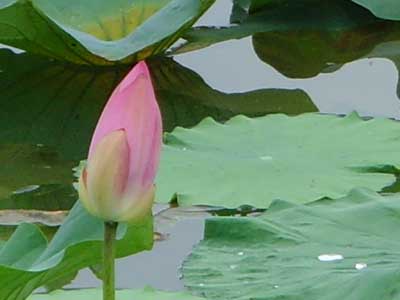The affluent Jiangsu Province has introduced an even tougher regulation to curb water pollutants discharged into the Taihu Lake, a source with the provincial environmental protection authority said.
The new regulation, which is expected to take effect on January 1 next year, seriously demands that emissions of COD (Chemical Oxygen Demand), ammonia nitrogen, nitrogen and phosphorus in industrial waste water and sewage disposal must meet first class national standards.
File photo: the lotus ready to break out into blossom in the Taihua Lake
The Taihua Lake area is home to six major industries that have caused most pollution in the lake, including dye, chemicals, paper-making, steel-making and food manufacturing plants.
It is the first time for the eastern province to dramatically raise the emission standard on water pollutants discharged into the lake since it was affected by the large algae outbreak in June this year.
The new regulation demands that by the end of June next year all cities and towns around the Taihu Lake must improve the standards of sewage disposal plants in line with tougher provincial emission limits.
Under the new standards, COD emissions of sewage disposals into the lake will be cut by about 50 percent, an official with the Jiangsu environmental protection department, who declined to be named, said.
The official estimated that about one-third of industrial plants located in the Taihu Lake area will be closed or relocated after the new regulation is implemented.
Sources with the provincial government also said some 3,000 small and medium-sized chemical plants, many located on the banks of the lake, are to be closed down by the end of 2009.
(China Daily October 19, 2007)






